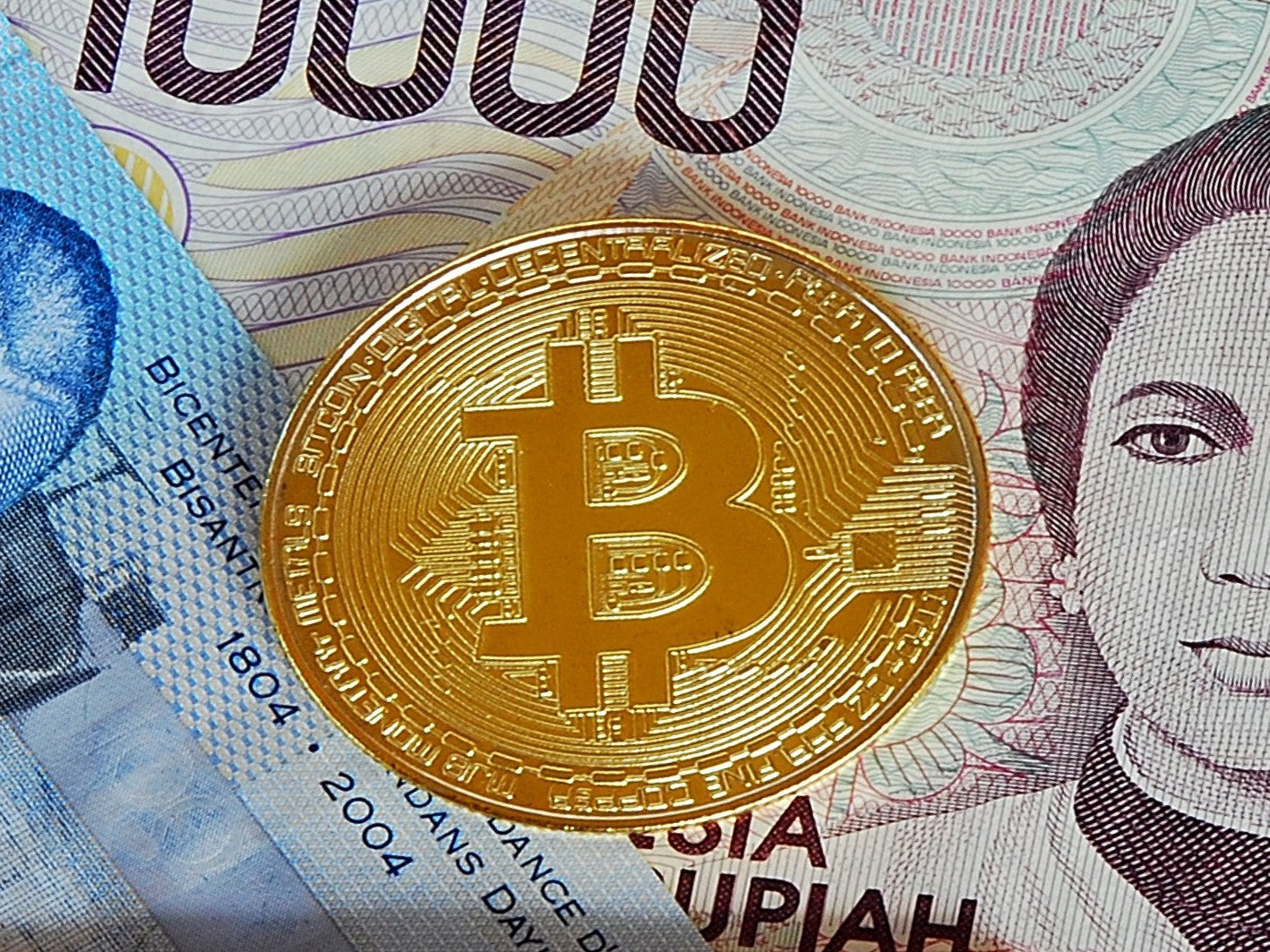Bitcoin halal? Muslims in Indonesia told not to buy as crypto declared haram
Crypto trading still remains legal in the country despite ruling

Your support helps us to tell the story
From reproductive rights to climate change to Big Tech, The Independent is on the ground when the story is developing. Whether it's investigating the financials of Elon Musk's pro-Trump PAC or producing our latest documentary, 'The A Word', which shines a light on the American women fighting for reproductive rights, we know how important it is to parse out the facts from the messaging.
At such a critical moment in US history, we need reporters on the ground. Your donation allows us to keep sending journalists to speak to both sides of the story.
The Independent is trusted by Americans across the entire political spectrum. And unlike many other quality news outlets, we choose not to lock Americans out of our reporting and analysis with paywalls. We believe quality journalism should be available to everyone, paid for by those who can afford it.
Your support makes all the difference.Religious leaders in Indonesia have forbidden Muslims from using bitcoin and other cryptocurrency.
The National Ulema Council, which serves as the country’s authority on Shariah compliance, announced on Thursday that cryptocurrencies were haram as they contain elements of uncertainty, wagering and harm.
Follow our live coverage of the crypto market
The ruling does not serve as an official decree, and no ban on trading has been introduced by the countries legislators, however it will likely have a significant impact on how comfortable people feel using the assets in the world’s largest Muslim country.
With a population of 237 million Muslims, Indonesia accounts for roughly 13 per cent of the world’s total Muslim population.
In 2018, Indonesia’s central bank declared that cryptocurrency was “not a legitimate instrument of payment”, but legalised the trading of bitcoin and cryptocurrencies as commodities in February 2019.
In May, Indonesia’s commodity futures trading regulatory agency Bappebti revealed that there were around 4.45 million cryptocurrency investors in the country, with 229 different cryptocurrencies legally traded across 13 licensed platforms and exchanges.
This far exceeds the number of stock investors, which is estimated to be roughly 2 million.
“The high interest in crypto assets is driven by several factors, such as the ease of conducting Know Your Customers (KYC) processes, as well as the fast processing of deposit and withdrawal transactions,” Oham Dunggio, chairman of the Indonesian blockchain association, said in May.
“Moreover, the crypto market operates 24 hours. This is why many young investors are choosing crypto over other types of investment.”
Bitcoin has faced various regulatory challenges in its history but its decentralised nature means it is relatively immune to bans.
While some countries have taken a hard stance on cryptocurrency, citing fears of scams and threats to traditional financial institutions, other countries have embraced it for its ability to act as a hedge against inflation, transform remittance services and reduce the reliance on the US dollar as the reserve currency.
Earlier this year, El Salvador became the first country in the world to adopt bitcoin as legal tender. The Central American country also invested in the cryptocurrency, and recently announced the construction of 20 new schools from the profits made from the recent price gains.


Join our commenting forum
Join thought-provoking conversations, follow other Independent readers and see their replies
0Comments